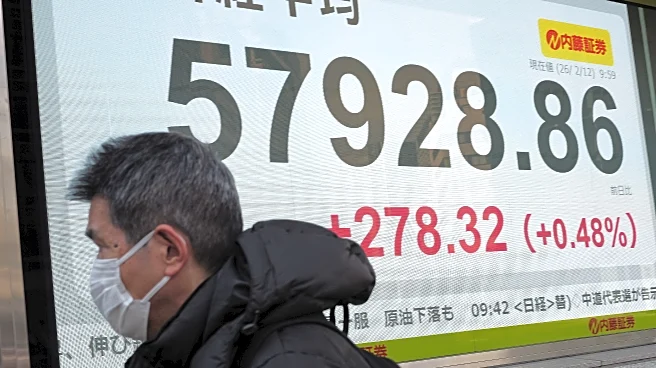What's Happening?
President Trump has expanded tariffs on imported steel and aluminum products, affecting an additional 400 categories. This move, announced in August, aims to support the revitalization of the American steel and aluminum industries by preventing circumvention
of existing tariffs. One of the products impacted by these tariffs is deodorant, which has seen a price increase. Despite the tariffs, experts like Professor Jagmohan Raju from the University of Pennsylvania suggest that the high price margins in beauty products mean that tariffs may not be the sole reason for the price hikes. Social media discussions have highlighted the rising costs of everyday items, including deodorant, as consumers face broader cost-of-living pressures and inflation.
Why It's Important?
The expansion of tariffs under President Trump is part of a broader strategy to restore U.S. manufacturing and address trade deficits. However, these tariffs contribute to increased costs for American consumers, particularly in personal care products like deodorant. The Consumer Price Index has shown a slight increase, indicating ongoing inflationary pressures. While tariffs are intended to bolster domestic industries, they also add to the financial burden on consumers, who are already dealing with inflation rates above the Federal Reserve's target. This situation underscores the complex interplay between trade policies and consumer prices, affecting purchasing power and economic stability.
What's Next?
As the holiday season approaches, price increases in beauty products may become more pronounced. Sellers might leverage the general trend of rising costs to justify further price hikes. Consumers could face higher expenses for personal care items, prompting potential shifts in purchasing behavior. The ongoing discussion on social media reflects public concern over affordability, which may influence future policy decisions or market strategies. Monitoring inflation trends and tariff impacts will be crucial for stakeholders, including policymakers and industry leaders, as they navigate the economic landscape.
Beyond the Headlines
The tariff expansion raises questions about the long-term sustainability of such trade policies and their impact on consumer goods. While intended to protect domestic industries, these measures can lead to unintended consequences, such as increased consumer prices and potential shifts in market dynamics. The ethical considerations of passing cost increases onto consumers, especially in industries with high price margins, highlight the need for transparency and fairness in pricing strategies. This development may also influence cultural perceptions of trade policies and their role in shaping economic conditions.



















